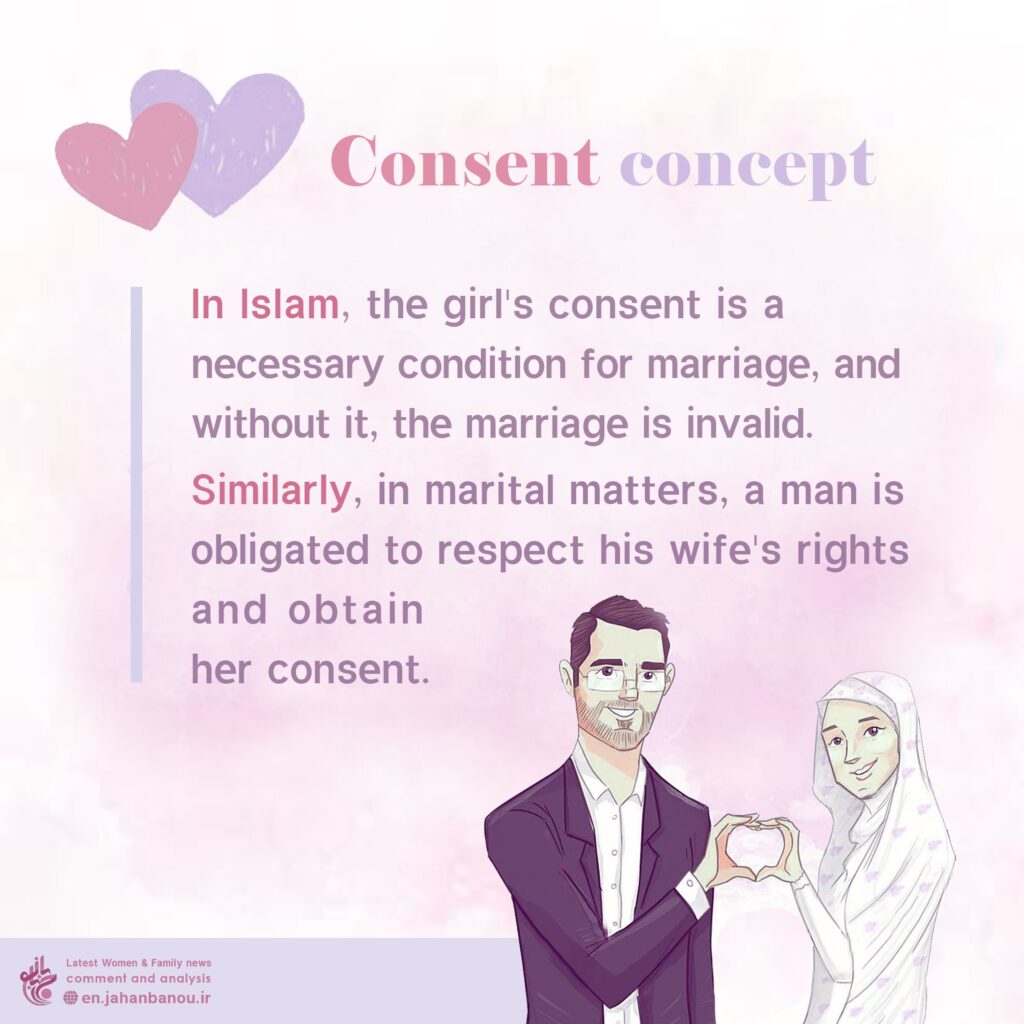Islamic teachings emphasize the importance of consent in marriage. Consent concept is not merely a moral suggestion in Islam, but a fundamental requirement for a valid marriage. Both the bride and groom must freely and willingly agree to the union.Consent extends to all aspects of the marital relationship, including sexual intimacy.

Quranic and Prophetic References
The Quran and Hadith provide numerous references emphasizing the importance of consent in marriage:
Quran
- Surah An-Nisa (The Women), verse 19: “And live with them [your wives] in kindness.” This verse underscores the importance of treating wives with respect and consideration.
- Surah Al-Baqarah (The Cow), verse 232: “Do not prevent them [women] from marrying the men they choose, if they are satisfied with each other.” This verse implies that women have the right to choose their husbands and that their consent is crucial.
Hadith
- A hadith from Prophet Muhammad (peace be upon him) states, “Do not marry a widow without consulting her, and do not marry a virgin without her permission.” This clearly indicates that both the bride and groom must be involved in the decision-making process.
Islamic Jurisprudence
Islamic scholars have consistently emphasized the significance of consent in marriage. In their legal texts, they have outlined the conditions and procedures for a valid marriage, including the consent of both parties.
Consent in Post-Marital Relationships
Consent is not limited to the initial agreement to marry. It extends to all aspects of the marital relationship, including sexual intimacy.
Islamic teachings are replete with instructions emphasizing the necessity of a woman’s consent in marital relations. For example:
- A hadith from Prophet Muhammad (peace be upon him) states, “There are three kinds of harshness: for a man to accompany… and for a man to approach his wife before playing.” It means, when engaging with your wives, kiss, embrace, and engage in foreplay. Express your love to her through affectionate words.This Hadith emphasizes the importance of affection and foreplay in marital relations.
- Another Hadith states, “If any one of you intends to have intercourse with his wife, let him not hasten.” It means that there should be a sense of calmness, consideration, and perhaps even spiritual preparation before engaging in sexual intimacy. This Hadith emphasizes that intimacy should not be rushed but should be approached with patience and consideration for the partner’s feelings.
These Hadith collectively highlight the Islamic emphasis on mutual respect, affection, and pleasure in marital relations. They encourage couples to approach intimacy with gentleness, patience, and consideration for each other’s feelings and desires.
Conclusion
Consent is a cornerstone of Islamic marriage. It is a fundamental principle that reflects the Islamic values of justice, equality, and respect for human rights. By understanding and upholding the concept of consent, Muslims can strengthen their marriages and build harmonious families.


